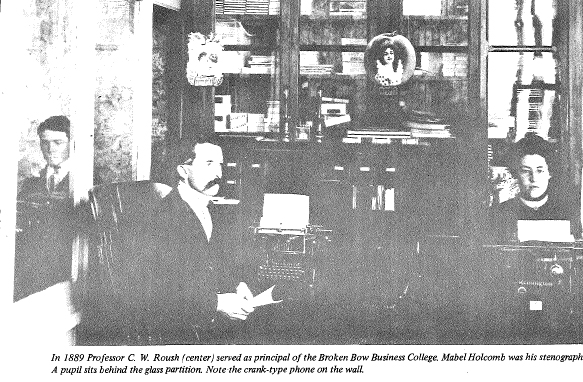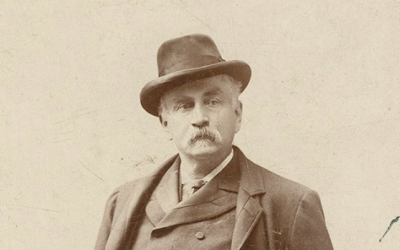The Lincoln Telephone and Telegraph Company began life competing with the much bigger Bell system, but was able to replace it over time. Read more about how it found its way to that success.

With the expiration of the fundamental Bell telephone patents in 1893 and 1894, independent manufacturers began making telephone equipment and local entrepreneurs established independent exchanges throughout the United States. The Bell system had concentrated its operations primarily in the larger cities. Connections between many of those cities as well as telephone development in smaller places were undertaken by local companies, either by reaching into areas not served or by establishing competing exchanges.
The Lincoln Telephone and Telegraph Company in Lincoln, Nebraska, began in 1903 as a local dial exchange competing with the giant Bell system which had had a manual exchange in Lincoln since 1880. Eventually, the Lincoln company was able to make a profit, satisfy the growing communication needs of the local community, and, later, extend its service to a large segment of Nebraska and replace the service of the Bell exchange, becoming one of the largest independent operators in the nation.
In William Torrence’s Nebraska History Magazine article from 1970, we see the successful launching of a small competitor and the means whereby it established itself as a formidable rival to the Bell system in Lincoln and the nearby area.
The incorporators of the new Lincoln telephone company believed they could compete with the local Bell exchange in a successful manner. One of the founders offered three reasons for success.
First, the automatic exchange would provide the latest, improved telephones operated from central energy, thus doing away with batteries necessary in individual telephone installations. Secondly, he implied that the rates to be charged would be lower than those charged by the Bell exchange. Finally, the new firm would be a home-owned company.
Also, news articles of the day show that there was some sentiment in Lincoln for competition with the Bell exchange in order to upgrade and extend the service being offered. Moreover, it was fashionable in those days to denounce big business, monopoly, and trusts, and this appeal was likewise made to the public in the Lincoln venture. In addition, the new firm was aided by the Nebraska Independent Telephone Association, organized about 1900 to unite the independent telephone companies against the Bell system. The Association acted as a propaganda agency and advertised its cause throughout the state. These, then, were the basic reasons why the incorporators of the new telephone exchange felt they could successfully compete with the already established Bell exchange.
Prudent management characterized the early years of the Lincoln Telephone Company. Aggressive advertising, strict financial control, the selection of the new dial telephone and consolidation with Western Telephone’s toll lines contributed to the success of the home-owned company.
Read the full article here.




